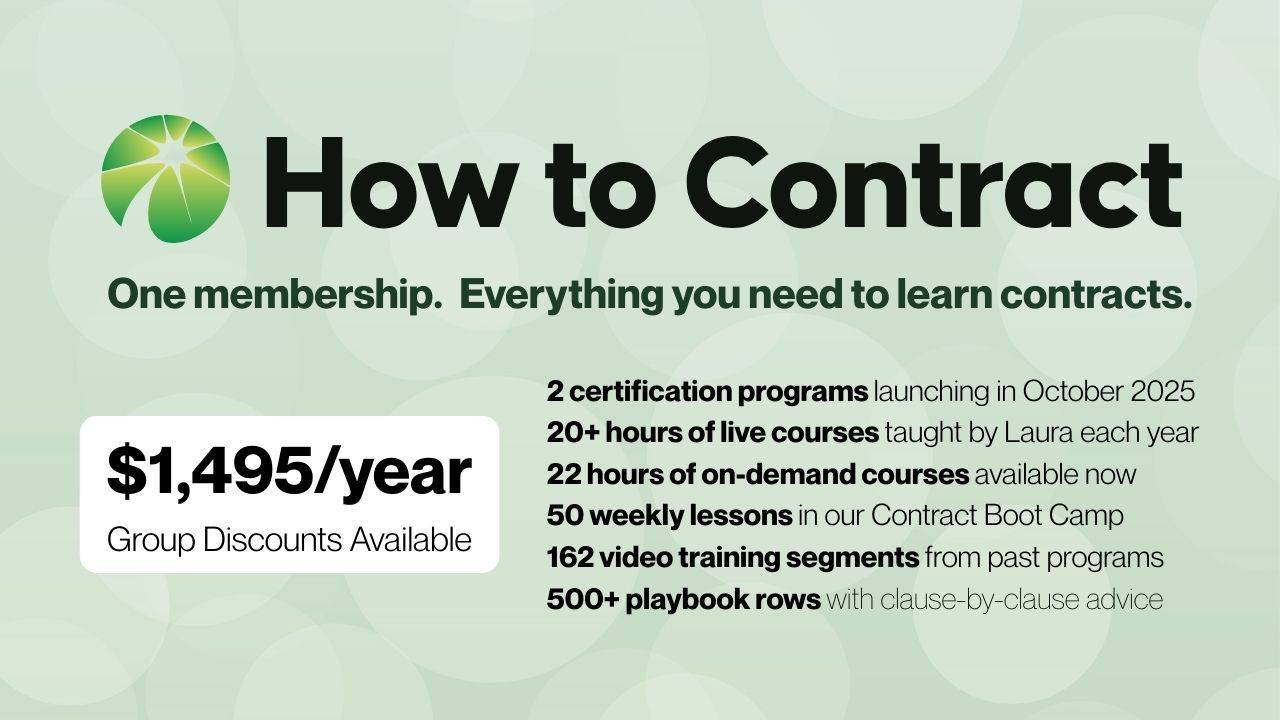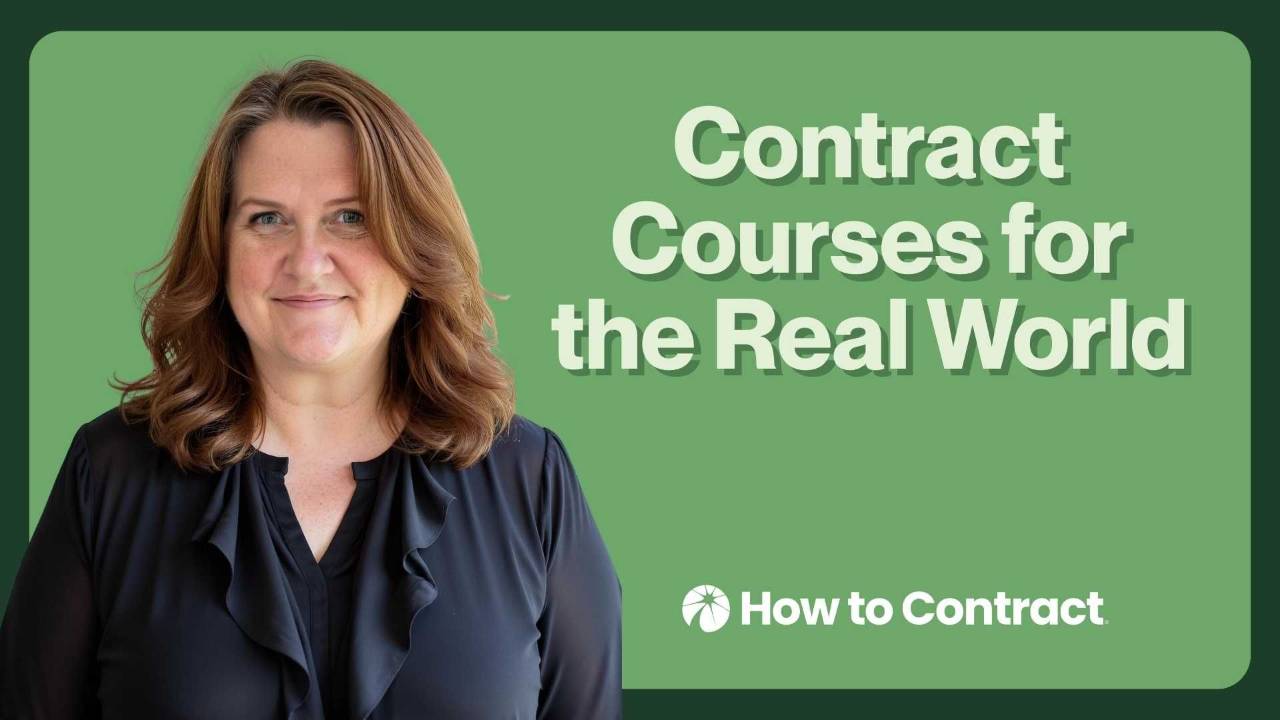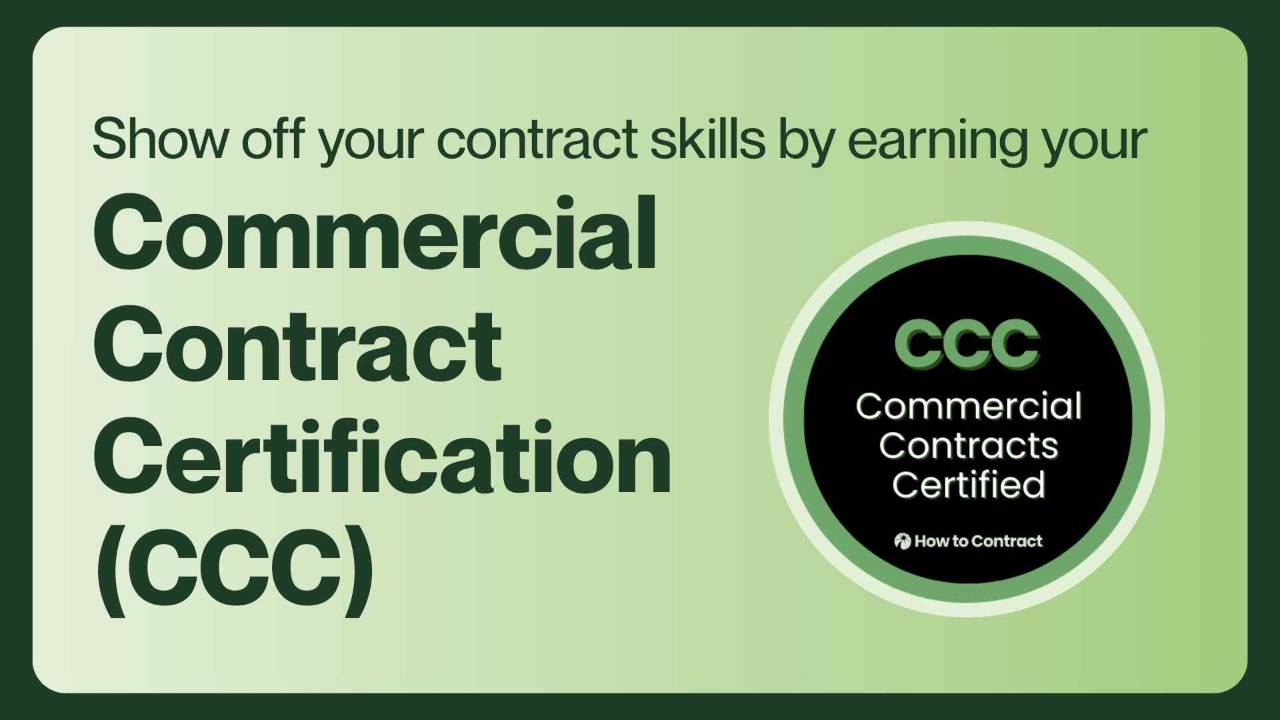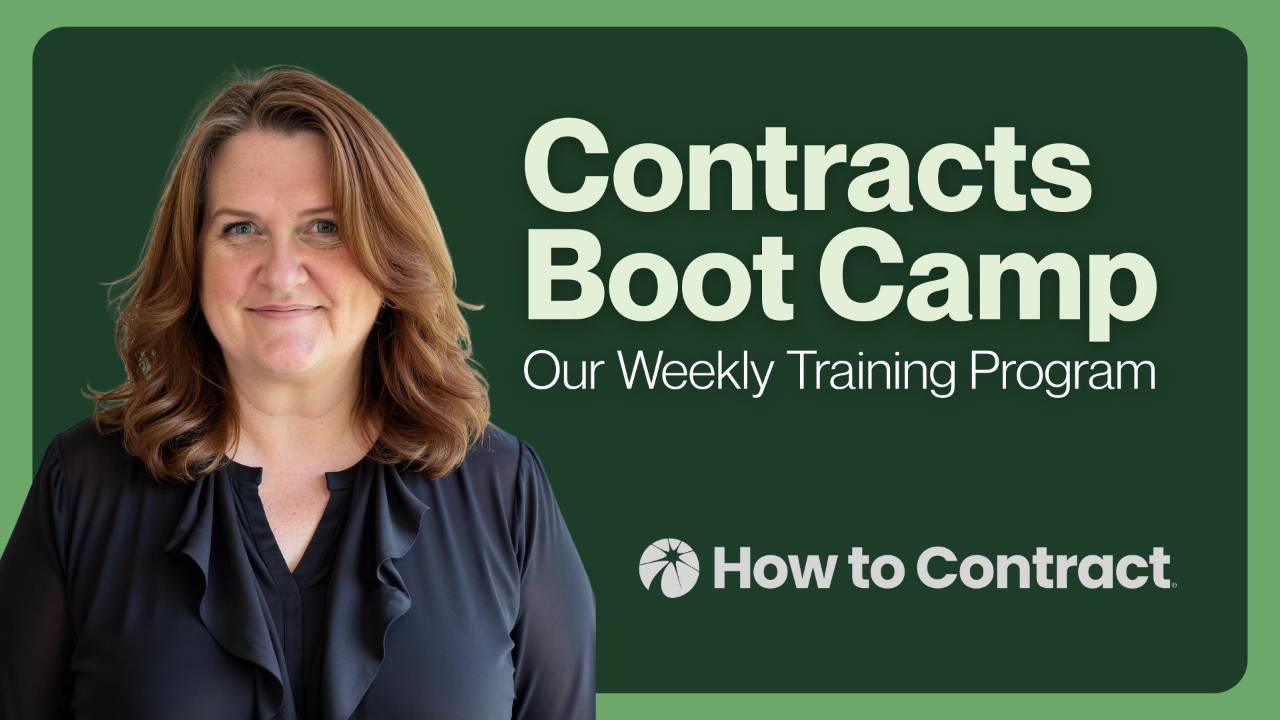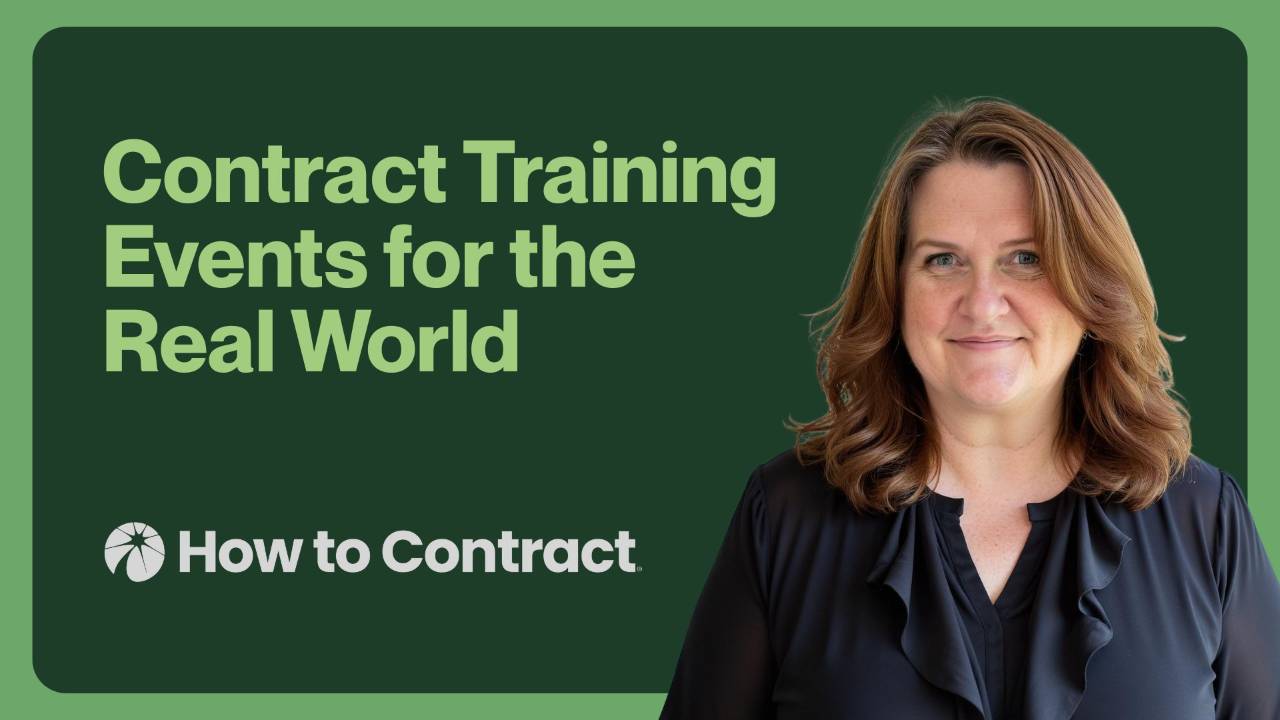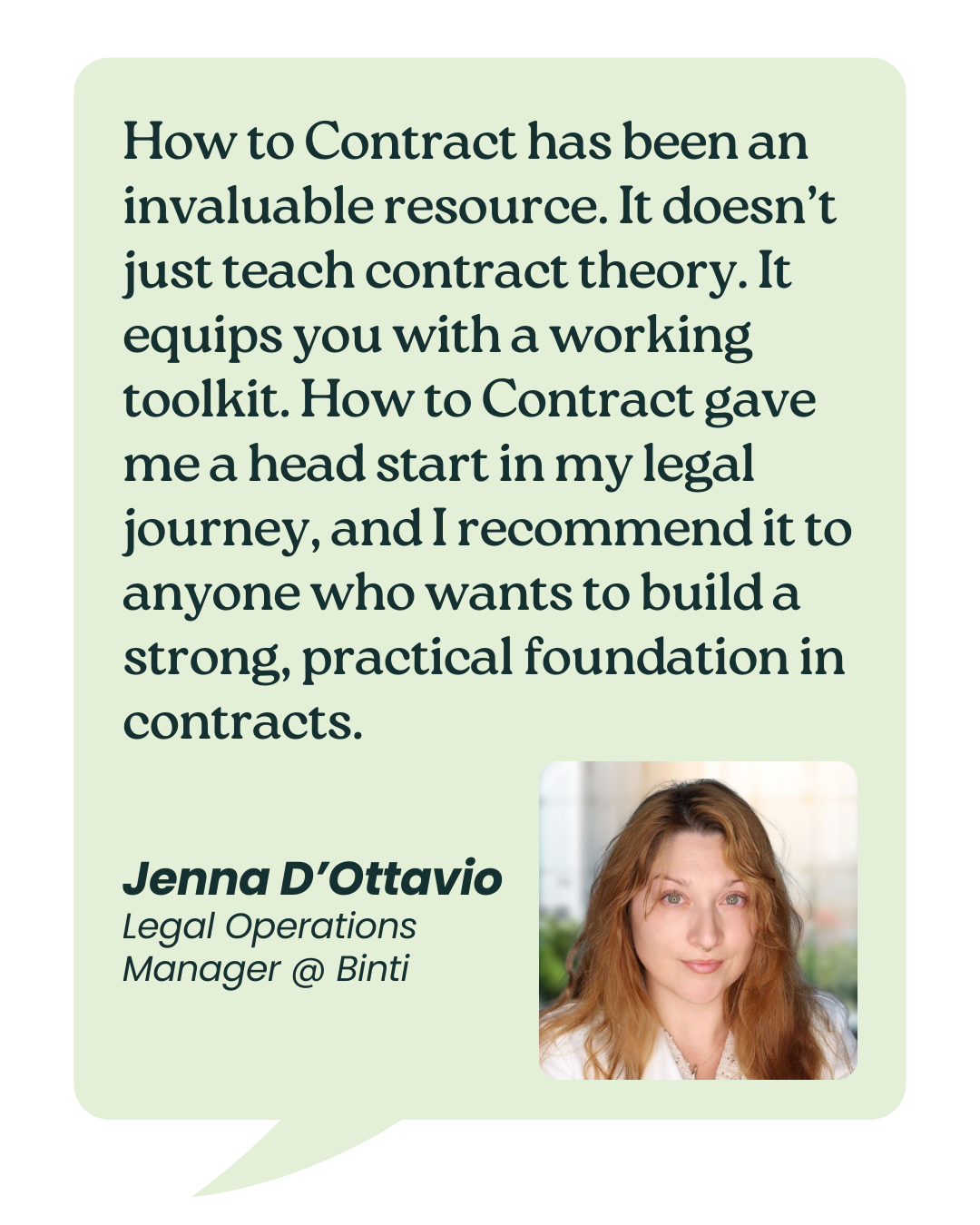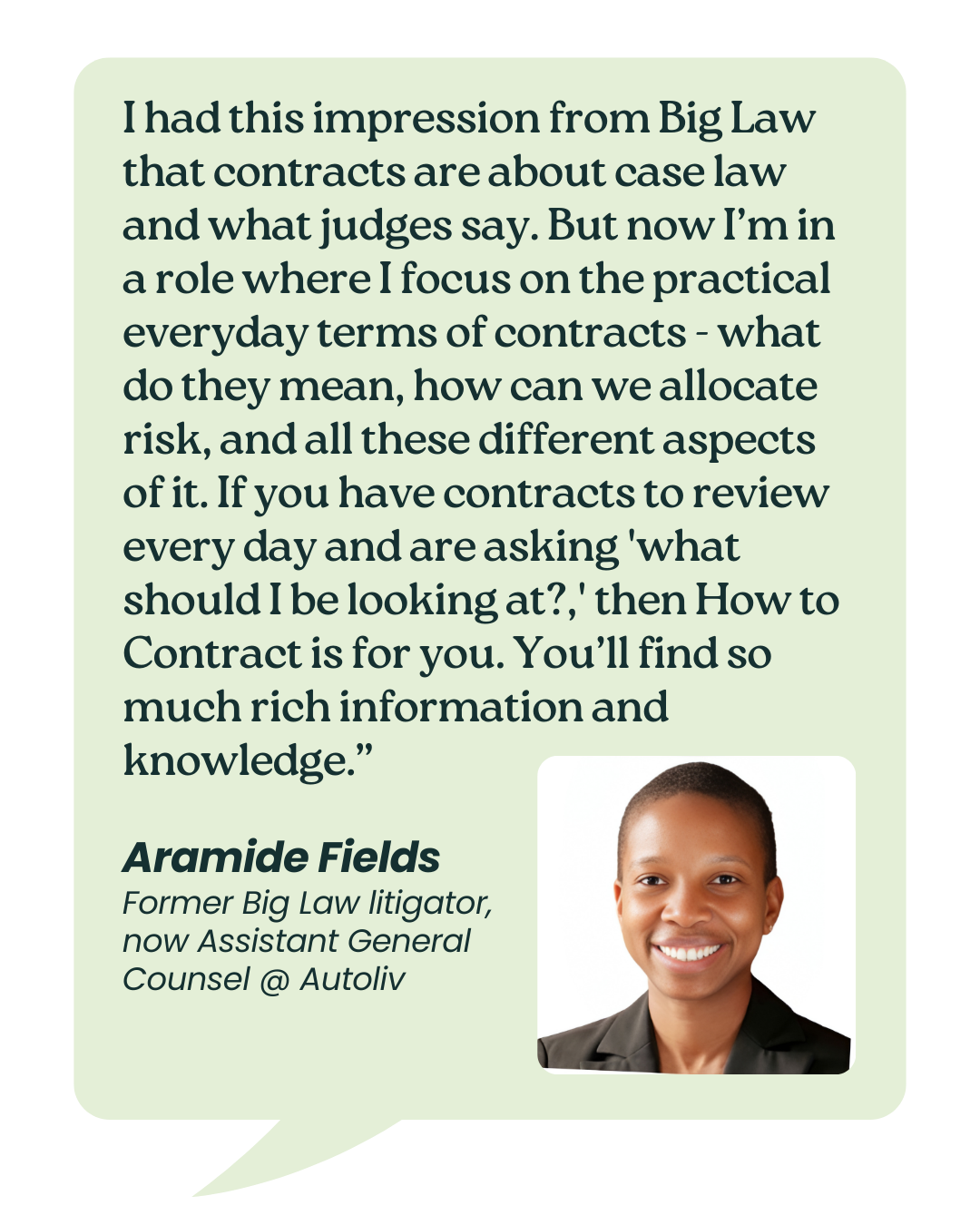
How I Contract: Tyler Quillin on Building Relationships and Managing Contracts
We have had the great pleasure to interview Tyler Quillin, Principal Corporate Counsel at Microsoft. Tyler is also HNBA 40 Top Lawyers Under 40 and Modern Counsel 35 Under 35.
This interview is part of our How I Contract interview series. We talk to lawyers and professionals about how they approach balancing legal risk with business objectives. In this interview, we talked to Tyler Quillin, Principal Corporate Counsel at Microsoft.
Biggest Lessons Learned in Contracting
Could you share the biggest lesson you’ve learned while working with contracts?
Relationships and approach matter. It’s not all doom and gloom when you enter into a negotiation. Sometimes, we as lawyers take the idea of being zealous advocates for our clients as a call to action to be aggressive, unreasonable, and downright rude. Just like in life, you get more with sugar than with vinegar. That doesn’t mean being soft or simply accepting every proposed revision. It means bringing a positive and collegial mindset into every interaction, whether that be counterparties and their counsel, or just meetings with your clients.
Experiences That Shaped Your Contract Skills
What contracting experiences shaped your contract skills?
Most coaches, regardless of the sport, will tell you that you learn more from losses than from wins.
While I don’t like to think of negotiations or my work in wins v. losses, I do think those early missteps inform how I go about my work today.
Those missteps could be instances where I didn’t have the confidence as a young lawyer to question something or speak up, or where I looked back and felt that I could have handled a tense situation or contentious issue better.
It’s not often, but sometimes deals die, and that’s okay.
Understanding why they die and ensuring that they died for good valid reasons is helpful.
When deals die because of ineffective counsel, that is when it becomes a problem. I think this most often happens when that overzealousness creeps in, as mentioned above.
Avoiding Common Mistakes in Contracts
What mistakes should contract lawyers and professionals avoid when working with contracts? How would you avoid them?
Simplicity/Clarity
Lawyers tend to have an inherent love of words, rules, and the competitive nature of the law. This leads us to try and flex our broad vocabulary and wield our complex understanding of grammar, syntax, etc.
This is often to the detriment of our clients and our purpose.
The sooner we all learn to break things down, use simple language and statements, and drive for broad understanding, the sooner we get to “yes,” and the better lawyers we become, as well.
Listening/Understanding
We, as lawyers, need to really, truly, in our heart of hearts invest in holistic and intentional listening and understanding – this goes for both our clients and our counterparties.
Some of our deals involve unbelievably complex technical aspects.
It is our job as lawyers to do our work ahead of time to get on the same page as our clients, understand what services are being provided/offered, and what our client’s goals are with the deal.
The more we understand the technical aspects and our goals, the better we can position ourselves appropriately AND understand what positions and needs the counterparty is likely to seek.
The biggest mistake I see is counterparty counsel not seeking to understand the deal or our position.
If you bring that stalwart mentality into deals, you may get a few things your client wanted… but over time, it will result in parties not wanting to do business with your clients AND you will develop an unreasonable reputation in the legal community, which will hamper your career goals in the long term.
Essential Questions for New Contracts
What is the one question you always ask (yourself/others) before drafting a contract?
I have three questions I ask when my clients bring a new deal my way:
- Describe the deal, i.e., what are the services, what are the technical aspects?
- Why this counterparty? (Are they an industry leader in their space? What is our existing relationship like with them?)
- What is our goal?
These questions help educate me on the minutiae of the deal from a pure technical aspect… what are we getting/giving and how does it work?
I get a sense of who the counterparty is, where is the leverage and is there a foundation of relationship we can use?
Lastly, it is critical to understand your clients’ goals when engaging in a contract negotiation.
I’d add here: It’s important to know how this deal fits into a broader business roadmap, i.e., is this a small spend, “nice to have” type deal, or is this a critical linchpin in our broader strategy such that we need it and we need to navigate costs in conjunction with a related component?
Focus Points When Drafting Contracts
What should you never ignore when drafting a contract? Why?
Rather than think of never ignoring… let’s focus on what I pay close attention to first.
I think of my first contract drafts as bucketed section reviews.
This seems obvious, but the sections I focus on my first time through are the:
- license grant;
- indemnity;
- limitations of liability,
- reps/warranties (and data privacy terms, if applicable).
Then, I look at services and payment terms after that.
I consider those first sections the meat of the agreement.
We need to make sure those terms are buttoned up, align with how the deal is structured, and our company policies.
That second set of sections is where a lot of the functional aspects of the agreement are set forth. So that’s where I want to make sure all that language jives with what my client wants to happen and what they understand the working relationship and processes to be.
Top Things to Hunt for in First Contract Drafts
What are the top five things to hunt for in first contract drafts?
Aside from reviewing the meat of the deal mentioned above, I have a checklist I use to review contracts, built and honed over years of learnings (good and bad, haha):
- Check parties' names.
- Check dates and agreement names (especially if statement of work is hanging off master).
- Check defined terms (so often clients or counterparties just capitalize terms randomly, with no real intention to do so.)
- Baked in here, check for phrases, abbreviations, odd words, or any language you don’t understand or think is used with a specific intent different from what we would normally read the words to mean. We are looking for industry-specific terminology. I’m not an engineer… so, there are plenty of terms and abbreviations I am not familiar with, but any engineer who has done this work knows what “x” phrase or language means.
- Check formatting alignment. (It doesn’t matter if you are using alphabetical subsections or Roman numerals, just be consistent, preferably aligned with the master agreement’s formatting, but not the biggest deal).
- Check cross-references. This happens last, once the entire deal is getting ready for signature. We make edits all throughout the text. We need to make sure that the reference to Section 6(a)(iii) is still accurate when we go to execute.
Tips for Contract Drafting and Negotiation
Are there any simple hacks our readers can use right away to improve their contract drafting and negotiation skills?
Always bring a positive and curious attitude to your negotiations. I always take time to introduce myself, find out where folks are dialing in from virtually, and generally set a positive tone from the get-go.
When you identify your key negotiation points that are deal breakers ahead of time, you can manage your approach to those issues proactively. This allows you to set expectations, potentially save time if the counterparty can’t accept those, but most often, it allows the parties to dig into creatively finding a way to accommodate the needs of both parties without wasting time on the formatting or odds and ends.
When the counterparty offers a revision, don’t jump to reject it. Take time to consider it, understand why they are offering it, and then respond reasonably. You can’t accept everything, but what you can do is give them the respect of considering their proposal and, if you can’t accept the revision, engaging with them to find out how you can accommodate their need there.
If I don’t understand why a revision is made in a redline, I ask what they meant.
I know it is hard and feels like you are maybe admitting that you aren’t smart enough to understand what they wanted… but I think this is a power move.
You have the confidence to ask the question.
You are secure in your experience, knowledge, and self to want to understand better.
The science behind these sorts of moves also shows that it ingratiates you with others and they think more highly of you.
Advice for My Younger Self
What advice would you give to your younger self when you started working with contracts? Why?
I would tell myself to calm down.
It’s okay not to know everything.
Asking questions and seeking to understand is the biggest determining factor for success.
Lawyers tend to love knowledge and when we know that we are learning or at an experience deficit from the attorney across from us, we can become intimidated or overly anxious.
This is all natural, but we have to remember that we are licensed attorneys, just like the other attorney. Our clients deserve the same level of advocacy as their clients. And, we are all trying to get to “yes” here.
Of course, this perspective comes with experience and who knows if I would be here without those natural nerves because they help us hone in and perform in the moment.
Lastly, mistakes happen. I hope that you all make your mistakes in a venue that can equate to leaving them on the cutting room floor, but you are going to make mistakes and you are going to learn from them. I hope that you have experienced attorneys to catch them before they become bigger issues and that those experienced attorneys help you learn from them, so as to not make the same mistake again.
Lawyers Who Influenced Your Career
If you could give a shoutout to one (or more) person who has influenced your life in contracts (or is your mentor), who would that be?
So many people have helped me where I am today. Jeff Frank – For giving me my first show and being in my corner, helping me pursue my goals, even when that meant leaving his firm and that initial opportunity. Catherine Romero – She saw potential in me and gave me the support, mentorship, and opportunities to succeed. At every turn, Catherine was there to help guide me. I wouldn’t be here without her. Maya Yamazaki and Ruben Pagan – They both taught me how to be a contract attorney. They let me learn from them. They let me ask dumb questions. They let me watch how they tackled fascinating legal issues. They let me make mistakes and improve. Wouldn’t be here without them.
Contract Training Challenges
What’s the biggest issue with today’s contract training, if any?
The problem is that there is very little contract training. Law school course offerings are sparse for contract classes, let alone intensive training opportunities. Law firms are really the only training grounds, and not all law firms are created equal. I was lucky enough to have some lawyers who were very generous with their time and forgiving as I came up. Like most young attorneys, I was met with quite a bit of negative feedback at first and it truly impacts your sense of self and you wonder whether this whole legal thing was a mistake. As a former teacher with a Masters in Teaching, I know that the ratios and presentation of positive and negative feedback are well-studied. Lawyers are great at many things, providing useful feedback and growing your associates in skill, confidence, and leadership are not often among those attributes that make you a great lawyer. I am grateful for the grace and latitude I was granted by my mentors to get me to where I am today. That said, there is no substitute for the reps. You need to get the reps and it’s hard to find a place that will let you get the reps while tripping and stumbling as you get your wits about you.
How to Contract's membership is designed to help you build real-world expertise with commercial contracts. Get access to our comprehensive system of live and on-demand courses, weekly lessons, detailed playbooks, and more. Join today!

